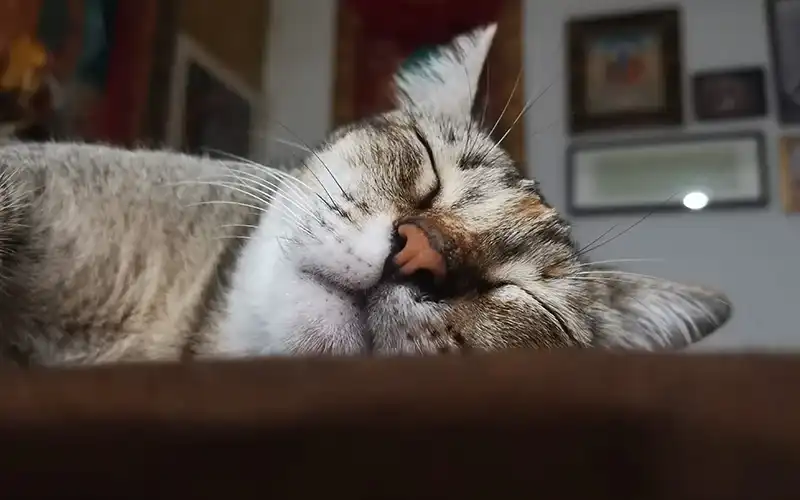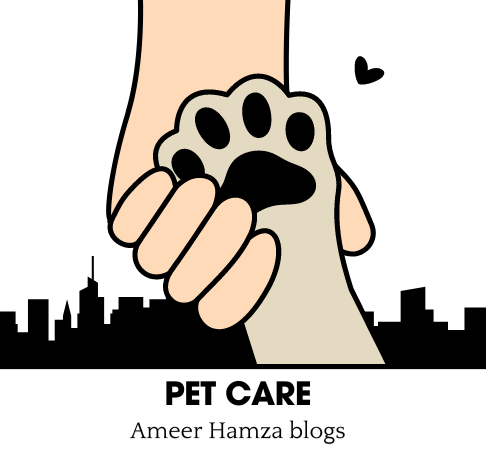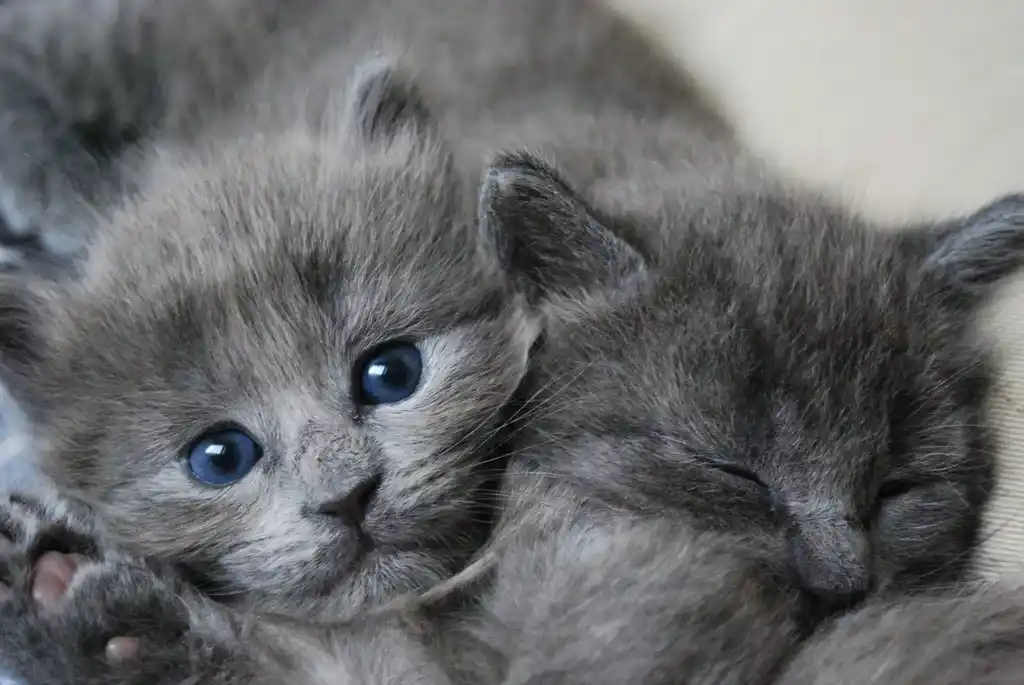Table of Contents
ToggleTop 8 Essential Nutrient Tips for Every Healthy Cat
1. Why Proper Nutrition is Important for Cats
A cat’s whole health, energy level, and even behaviour depend on a balanced diet, just as with humans. Cats are obligate carnivores—that is, their bodies are designed to break down and flourish on animal-based proteins and minerals.
Unlike omnivores—such as dogs and humans—cats have certain nutritional requirements that cannot be satisfied by diets based only on plants. Without the correct nutrients, kids might experience everything from minor digestive trouble to more serious medical conditions like kidney failure or being overweight..
This blog will take you through every important nutrient and how it promotes your cat’s health, therefore providing useful information to enable you to pick the finest diets. Let’s start right now!
2. Protein: The Essential Building Block for Cats
The basis of a cat’s diet is protein. Cats are obligate carnivores; so, their muscular mass, immune system, and general health depend on premium animal proteins. Essential for heart health, eyesight, and metabolic activity, proteins include amino acids such as taurine and amino.
Tip: Look for meals rich in protein from sources such as chicken, turkey, fish, and beef. The protein needs to be among the first things mentioned on your cat food label.
For more on choosing quality protein sources, see our post, Top Cat Food Choices for Gassy Kittens.
3. Healthy Fats: Providing Energy and Vitality
Your cat’s health depends much on fats, as they provide focused energy and help to absorb nutrients. For skin and coat health, for example, omega-3 and omega-6 fatty acids are vital; they also help cognitive ability by lowering inflammation. For picky eaters, fats can enhance the taste of food, which is advantageous.
Tip: Make sure your cat’s diet contains flaxseed, chicken fat, or fish oil—healthy fats. For further advantages, several companies further strengthen their meals with Omega-3.
Personal Note: When I first adopted my cat, I noticed her coat looked a bit dull. In only a few weeks, switching to a premium meal with Omega-3 added clearly changed things!
Our feline buddies also need a spectrum of vitamins to be healthy, just as humans do. From immune system maintenance to cell repair, cats depend on these vitamins for everything.
- Vitamin A: Essential for the immune system, skin health, and eyesight
- Vitamin D: aids in the control of calcium for robust bones.
- Vitamin E: Powerful antioxidant vitamin E shields cells from harm
- Vitamin K: Essential for healing wounds and blood clotting
Tip: Although most premium cat diets are supplemented with vital vitamins, double-check the ingredient list. Cats need these vitamins from their food, as they cannot create them naturally.
4. The Importance of Hydration
Cats depend on their food to satisfy their water demands; unlike dogs, they have a low thirst drive. Kidney problems, urinary tract infections, and digestive trouble may all follow from dehydration. Cats that consume mostly dry food run more danger of dehydration.
Tip: If your cat likes food, think about including wet food into their diet or installing a pet-safe water fountain to inspire more drinking.
5. Understanding Carbohydrates in Cat Diets
Although they do not need carbs in their diet, cats may manage minute quantities as an energy source. Still, diets heavy in carbohydrates may cause digestive problems, diabetes, and obesity. When selecting a meal, search for foods low in fillers like soy, wheat, and maize, which add pointless carbohydrates without offering vital nutrients.
Tip: If your cat suffers with weight or digestive problems, search for low-carb or grain-free cat diets.
6. The Role of Fiber in Digestion
Although it doesn’t appear as vital for cats as protein or fat, fibre is nevertheless rather crucial for maintaining good digestion. Fibre may help control bowel motions and avoid problems such diarrhoea or constipation. Commonly present in cat meals, certain fiber-rich foods like pumpkin or beetroot pulp provide mild aid for digestive health.
Tip: Cats with sensitive stomachs or those prone to hairballs may find particular benefit from fibre.
Its antiserum is not toward anyone If your cat needs more fiber, you can give them a bit of canned pumpkin added to their food

7. Common Nutritional Deficiencies and How to Avoid Them
This is especially true in cases where owners are not familiar with the nutritional requirements specific to felines, they might be surprised by these nutrient deficiencies. These are some of the most often occurring weaknesses and tips for avoiding them:
- Taurine Deficiency: Eye and heart function depends on taurine. Select meals with taurine listed on the label as cats cannot naturally produce this amino acid.
- Vitamin B Deficiency: Look for meals high in fortified B vitamins, which are vital for energy metabolism.
- Magnesium Deficiency: While too much magnesium might cause urinary problems, insufficient amounts can induce muscular weakness and convulsions. Usually meeting this need, balanced meals are worth investigating if you are creating homemade cat food.
External Reference Suggestion: The American Veterinary Medical Association states that taurine shortages have been connected to dilated cardiomyopathy in cats, thereby stressing the need of selecting meals high in nutrients.
8. Creating a Balanced Diet for Your Cat
Keeping a balanced diet guarantees all necessary elements are obtained and offers diversity. Although most high-quality commercial cat feeds are meant to be nutritionally balanced, including some fresh, homemade choices may also help. Without compromising nutritional balance, lean meats, modest portions of cooked veggies, and occasional treats may provide variation to your cat’s diet.
Tip: If you’re thinking about homemade diets, contact your veterinarian. They can help you select any supplements you may require and safe portions.
See How to Prepare Healthy Cat Food at Home to learn more about cooking for kitties..
Consulting Your Veterinarian for Personalized Nutrition Plans
Of course, every cat has their unique style and preferences too. It can be advisable to contact a vet if you are not certain of what your cat eats, have trouble determining the amount or if she/he has obesity problems, renal disease or food allergies. Your cat’s veterinary nutritionist might recommend prescription foods, complementary supplements or even a bespoke home-made diet.
Personal Note: My veterinarian advised a limited-ingredient diet when my cat developed food allergies; this made all the difference in her comfort and general condition.
Conclusion: Ensuring Optimal Health Through Proper Nutrition
Feeding your cat correctly calls for more than just selecting any cat food from the shelf at the grocery. Understanding the basic ingredients that maintain their health—protein, good fats, vitamins, and hydration—you can make decisions that help your furry buddy have a long, happy life. Recall, even little adjustments like adding wet food or making sure they are receiving adequate taurine may have a significant impact.
Are the nutrients your cat is getting correct? Have you altered their diet to make improvements? Leave your advice and stories for us in the comments below!
See our other articles on feline care and nutrition for other ideas on maintaining your cat’s health. And please ask questions if you have any.

